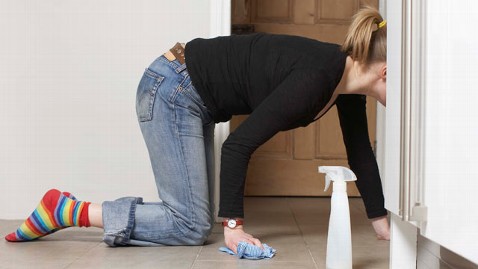Study Tying Women's Weight Gain to Housework Draws Fire for Coke Link
A group of researchers now says that one reason modern women may be packing on the pounds is because they're not doing the heavy lifting around the house that they once did.
"We looked at 91 different activities - going to the gym, walking the dog - and the only thing that influenced their energy expenditure was the work in the home," said Edward Archer, a University of South Carolina research fellow and the study's lead author. "That's why the study focused on that."

Image credit: Getty Images
In the study, a team of University of South Carolina researchers at the Arnold School of Public Health compared the activity logs kept by stay-at-home women from 1965 until today and found that in 1965, women spent 25.7 hours a week pushing tanklike vacuums, dusting, mopping, cooking and washing.
The results were published this month in PLOS One.
But in 2010, women spent 13.3 hours a week on household chores - and they are also 22 pounds heavier than their 1965 counterparts.
Archer said the study was not intended to tell women they are fat because they don't do housework.
"The take-home message is not that women should be doing more housework but rather that women and individuals in general should find ways of integrating physical activity into their day," Archer said. "How you spend your day determines health, how you spend your day determines the health of the next generation."
Other experts, however, said the obesity epidemic was caused by a long list of factors that included not just physical activity but diet, genetics and economic status. They also questioned the motives of Coca-Cola, which sponsored the study.
"It makes no sense for Coca-Cola to be funding studies on causes of obesity because they are one of the causes for obesity," said Kelly Brownell, director of the Rudd Center for food policy and obesity at Yale University. "It would be like taking money from the tobacco industry to find other causes of lung cancer. It really makes no sense at all."
Women also fired back on Twitter today.
"The 1950s called and they want their article back," said one tweet.
Archer said the source of the study's funding was "irrelevant."
"We should be turning focus on ourselves," he said. "What we can do for ourselves, especially in the context of our health and especially in the context of our children."